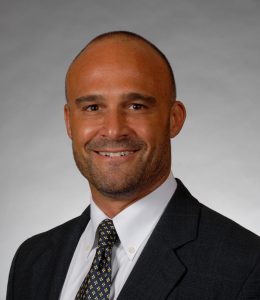Joseph Toscano, MD, on the Role of Urgent Care Medicine in Covid-19 Testing
 Initially, like everyone else in medicine and business, urgent care operators and clinicians were very uncertain as to how to operate with this new infectious disease, Covid-19, in the mix. How would we treat our usual patients? How would we evaluate patients for Covid? How would we protect staff? Would there be enough PPE (personal protective equipment)? In essence, we innovated—developing processes for patient screenings prior to visits using AI (artificial intelligence) and telemedicine triage, opening tents for testing and patient care, providing separate care locations to limit contagion, and sourcing and preserving PPE in new ways. As an essential part of the healthcare system, urgent care centers (UCCs) are now providing safe testing and further evaluation for sicker Covid patients.
Initially, like everyone else in medicine and business, urgent care operators and clinicians were very uncertain as to how to operate with this new infectious disease, Covid-19, in the mix. How would we treat our usual patients? How would we evaluate patients for Covid? How would we protect staff? Would there be enough PPE (personal protective equipment)? In essence, we innovated—developing processes for patient screenings prior to visits using AI (artificial intelligence) and telemedicine triage, opening tents for testing and patient care, providing separate care locations to limit contagion, and sourcing and preserving PPE in new ways. As an essential part of the healthcare system, urgent care centers (UCCs) are now providing safe testing and further evaluation for sicker Covid patients.
While most hospital emergency patient volumes are about 20% to 30% lower than usual, UCCs are bursting at the seams, with the usual complement of patients, as well as patients who want or need Covid-19 testing. UCCs have not only filled a testing void, but they have also figured out how to safely see all their usual patients.
Testing at UCCs offers patients the benefit of expanded health care. So, if someone who needs to be tested exhibits symptoms that require medical evaluation, a UCC is preferable to a testing center, where the only capability is to obtain and send a specimen for testing. At a UCC, there are clinicians available to evaluate patients for complications of Covid, such as low oxygen levels, dehydration, pneumonia, and cardiac diseases. Another major benefit is that some UCCs offer rapid testing, an option that seems to be less available at places that offer testing alone and have no health care professionals available to discuss test results and their implications with patients.
Will the Pandemic Change Urgent Care Centers?
The Covid-19 pandemic has affected the entire healthcare system, from patients and healthcare operations to protective measures and finances. Lessons learned will shape our response to any new emerging disease. We will simply be more prepared. Many healthcare professionals think that we should be and have been just as careful, in terms of contagion-limiting processes, with seasonal flu or any infectious illness. Much of our response in the past has been reactive—as with Ebola, for example. Hopefully, the current processes and innovations take hold even as the health risks of Covid-19 have been resolved.
Joseph Toscano, MD, a leader in urgent care medicine, is a Diplomate of the American Board of Physician Specialties® (ABPS).






